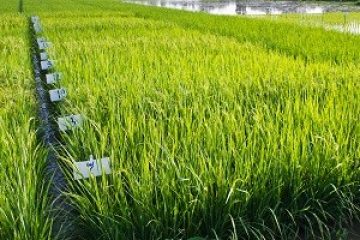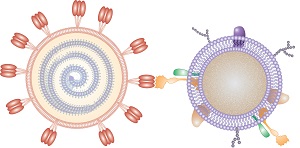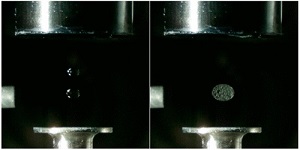FOR IMMEDIATE RELEASE

“Hypotensive Activity of Transgenic Rice Seed Accumulating Multiple Antihypertensive Peptides”
Journal of Agricultural and Food Chemistry
In the future, taking your blood pressure medication could be as simple as eating a spoonful of rice. This “treatment” could also have fewer side effects than current blood pressure medicines. As a first step, researchers reporting in ACS’ Journal of Agricultural and Food Chemistry have made transgenic rice that contains several anti-hypertensive peptides. When given to hypertensive rats, the rice lowered their blood pressure.
High blood pressure, also known as hypertension, is a major risk factor for cardiovascular disease and stroke. A common class of synthetic drugs used to treat hypertension, called ACE inhibitors, target the angiotensin converting enzyme (ACE), which is involved in blood pressure regulation. However, ACE inhibitors often have unpleasant side effects, such as dry cough, headache, skin rashes and kidney impairment. In contrast, natural ACE inhibitors found in some foods, including milk, eggs, fish, meat and plants, might have fewer side effects. But purifying large amounts of these ACE-inhibitory peptides from foods is expensive and time-consuming. Le Qing Qu and colleagues wanted to genetically modify rice –– one of the world’s most commonly eaten foods –– to produce a mixture of ACE-inhibitory peptides from other food sources.
The researchers introduced a gene to rice plants that consisted of nine ACE-inhibitory peptides and a blood-vessel-relaxing peptide linked together, and confirmed that the plants made high levels of the peptides. The researchers then extracted total protein (including the peptides) from the transgenic rice and administered them to rats. Two hours after treatment, hypertensive rats showed a reduction in blood pressure, while rats treated with wild-type rice proteins did not. Treatment of rats over a 5-week period with flour from the transgenic rice also reduced blood pressure, and this effect remained 1 week later. The treated rats had no obvious side effects in terms of growth, development or blood biochemistry. If these peptides have the same effects in humans, a 150-pound adult would need to eat only about half a tablespoon of the special rice daily to prevent and treat hypertension, the researchers say.
The authors acknowledge funding from the National Program of Transgenic Variety Development of China.
To automatically receive press releases from the American Chemical Society, contact newsroom@acs.org.
Note: ACS does not conduct research, but publishes and publicizes peer-reviewed scientific studies.
Note: ACS does not conduct research but publishes and publicizes peer-reviewed scientific studies.




